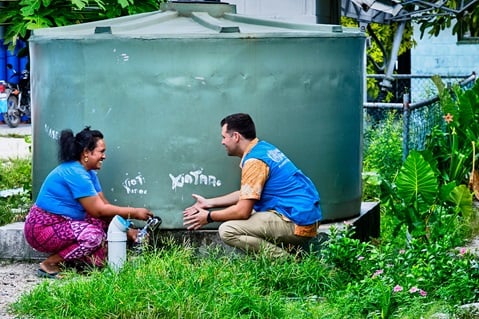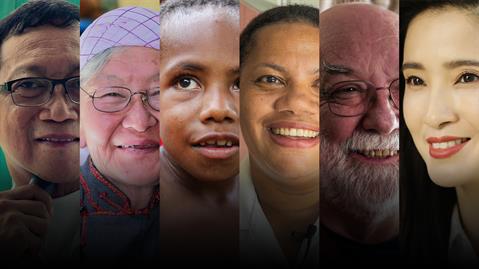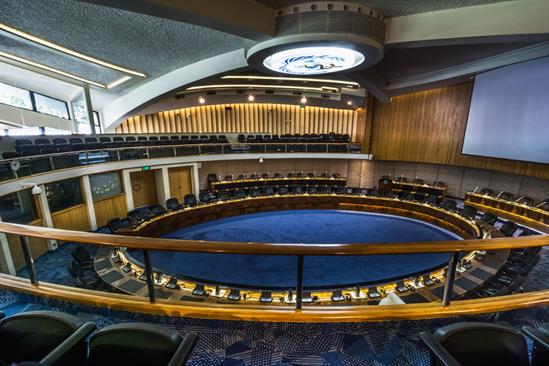Honourable Minister CHEN ZHU,
Honourable MinisteR Akira Nagatsuma,
Honourable Minister Jeon Jae-Hee,
Distinguished representatives
I sincerely appreciate your invitation to participate as an observer in this
Tripartite Meeting of Ministers of Health, particularly since you have done so much to help strengthen capacity for pandemic influenza preparedness and response throughout the Region.
China, Japan and the Republic of Korea, of course, are the largest countries in our Region. But your influence in the Region and globally is based on more than your population or the size of your economies. You have demonstrated that independent and diverse nations can work together effectively on important health issues.
Many of the problems we face in public health and in working to meet the health-related United Nations Millennium Development Goals simply cannot be solved working in isolation — especially the difficult problems associated with emerging and re-emerging infectious diseases.
The leadership you demonstrated in planning and carrying out the CJK Flu Fighter United exercise in October 2008 is an excellent example of the kind of cooperation that is demanded if we are going to win the fight against pandemic influenza and so many other challenges that are essential to our long-term health and prosperity.
At your last Tripartite Meeting in Beijing in November 2008, you were generous enough to share what you had learnt in the Flu Fighter exercise with your neighbours in the Region and beyond. In fact, the support of China, Japan and the Republic of Korea allowed WHO and our colleagues from the Association of Southeast Asian Nations to organize a workshop in Manila just two months ago that focused on further pandemic preparedness.
It led to an agreement on the prompt sharing of pandemic influenza information, including changes in virus severity, drug resistance and adverse vaccine reactions. On behalf of all WHO Member States, I thank you not only for your support but for your willingness to freely share information and experiences.
As the WHO Regional Director for the Western Pacific, I pledge the full support of the Organization in assisting you in responding to the many challenges you face. The Regional Office for the Western Pacific in Manila has more than 30 distinct programmes focusing on various aspects of public health, with 15 country offices spread across the Region.
When you met in Beijing last year, all of us in public health were concerned with a potential H5N1 — or avian influenza — pandemic. But a year later, it's another emerging strain, the pandemic influenza A (H1N1) 2009 virus, which is spreading globally. And the work this tripartite group has done over the past two years is proving to be very significant in our ongoing fight against pandemic influenza.
Rest assured that pandemic influenza is among our highest priorities at the WHO Regional Office for the Western Pacific. We have a regional system in place that monitors unusual disease events 24-hours-a-day, seven-days-a-week. The International Health Regulations, which were adopted by all WHO Member States in 2005, laid the ground work for our current response to pandemic influenza.
Of course, WHO is continuing to work on a range of other important challenges, including health security issues such as food safety, climate change, and the health impact of natural disasters, as well as health systems strengthening.
As we tackle these issues, it's encouraging to see the strong support and contributions continuing to come from the China-Japan-Republic of Korea Tripartite Meeting of Health Ministers.
Once again, I thank you for your invitation to participate as an observer and look forward to our continued cooperation.
Thank you.




